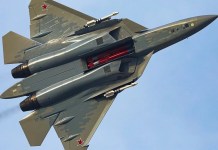The Russian-Kazakh Border passing through Lake Sladkoe in the Novosibirsk region, will not change, however, due to the fact that the lake eventually withered, the border line, which previously passed along the lake’s water, will now be on the shore. This was reported in the border department of the FSB of Russia in the Novosibirsk region.
“The Russian-Kazak border does not physically move anywhere, it’s just that the lake has withered with time, and the border that used to pass through the water is now passing along the shore,” the source said.
The lake dried up evenly both from the Russian and the Kazakh side, however, the Russian-Kazak border runs not from its center, and the Russian part of the reservoir was initially smaller. Therefore, now that the lake has diminished in size, the water was preserved only in its central part, which was always Kazakh, and the border line began to pass along the Russian coast. Thus, entering the water, a Russian becomes a border violator, noted in the border guard department, adding that this applies to local residents, accustomed to the fact that part of the water surface of the lake belongs to Russia.
Thus, entering the water, a Russian becomes a border violator, noted in the border guard department, adding that this applies to local residents, accustomed to the fact that part of the water surface of the lake belongs to Russia.
Thus, entering the water, a Russian becomes a border violator, noted in the border guard department, adding that this applies to local residents, accustomed to the fact that part of the water surface of the lake belongs to Russia.
Previously, many media reported that Russia is transferring part of Lake Sladkoe to Kazakhstan which lies on the Russian-Kazak border. The head Novosibirsk region said that no documents on the transfer of the lake were signed, but local residents were asked to warn that the existing border, which was established 20 years ago, will now pass along the shore.
According to the district administration, there is no economic activity on the lake, it was not recharged, and only in the hunting season hunters come to it. As reported in the Novosibirsk Regional Association of Hunters and Fishers, from this point of view the lake is also not something unique. “For the region, it is not a significant hunting place.
Drying of Lakes on Russian-Kazakh Border
According to the Head of the Department of Nature Management and Geoecology of the Geographical Faculty of the Altai State University Gennady Baryshnikov, the drying up of lakes is a natural process.
“If there are changes related to the drying up of the climate, the decrease in the volume of lakes, this is a natural process, you can not get away from it, but there is a cycle in nature.” There are three-, seven-, eleven-, centenary cycles, and when these cycles are superimposed on each other Friend, there are such anomalies – a drop in water, or an increase, “said Baryshnikov.
He noted that eventually the next cycle will come, and the water in the lake will rise again. However, when this happens in this particular case, it is difficult to say. According to the Government of the Novosibirsk region, the region has about 3,500 lakes, most of which, like Sweet, are small lakes. In the Kupinsky district near Lake Sladkoe, there are a lot of other lakes, in particular, Dvoinoye, Solyonoe and Gorkoe the much of which has medicinal properties.




